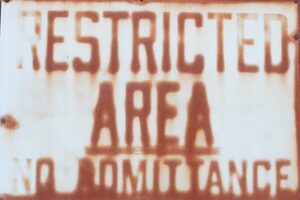How do you know when WCC is doing construction on campus? The Board of Trustees raises tuition and fees. Prior to the start of the Fall semester, WCC added a $5 per credit hour “technology infrastructure” fee to student attendance costs. The construction project? The Great Lakes Regional Training Center.
The project, which has an estimated budget of nearly $6M, will draw $3.5M from WCC’s General Fund Reserve. WCC will pay 60% of the cost of the project.
In 2020, WCC reported to IPEDS that students enrolled in 223,850 credit hours. Although the headcount and the per credit hour enrollment both dropped in 2021, WCC now collects $15 per credit hour in student fees. 220,000 credit hours x $15 per credit hour is $3.3M that WCC will raise in fees this fiscal year.
The WCC Board of Trustees firmly believes we’re in a rich community. If that’s the case, why is it necessary to force the students to pay for construction costs on a building they don’t even use?
In the past, I have written about the impact of campus construction on WCC’s tuition and fees. With every construction project on campus since the late 1990’s, student tuition and/or fees rise.
The Trustees have a mechanism to pay for construction on campus without impacting the students. It requires them to ask the voters to authorize bonds and create a tax to pay the bonds. They refuse to use it.
Tuition and fees increase starts a destructive spiral
There is a cost associated with forcing students to pay for campus construction projects. When tuition and fees rise, fewer students attend classes. And those who stay take fewer classes. Raising tuition to fund construction on campus makes the community college a less attractive, less viable resource for obtaining low-cost, high-value education.
The strategy, which primarily serves those who are opposed to paying taxes, creates a downward spiral that’s hard to recover from. Higher tuition reduces enrollment, which reduces revenue. The college has fairly high sunk costs, so the decrease in enrollment doesn’t decrease expenses. At this point, the WCC administration can either increase revenues or decrease expenses. Since they don’t appear to know how to stop spending, they raise tuition and/or fees, which perpetuates the spiral.
I have said this before: the Trustees aren’t worried about getting turned down by the voters. Washtenaw County voters are extraordinarily generous with WCC. The Trustees are simply controlling their Ann Arbor property tax bills to the detriment of the rest of Washtenaw County.
Photo Credit: Ross Mayfield, via Flickr
































